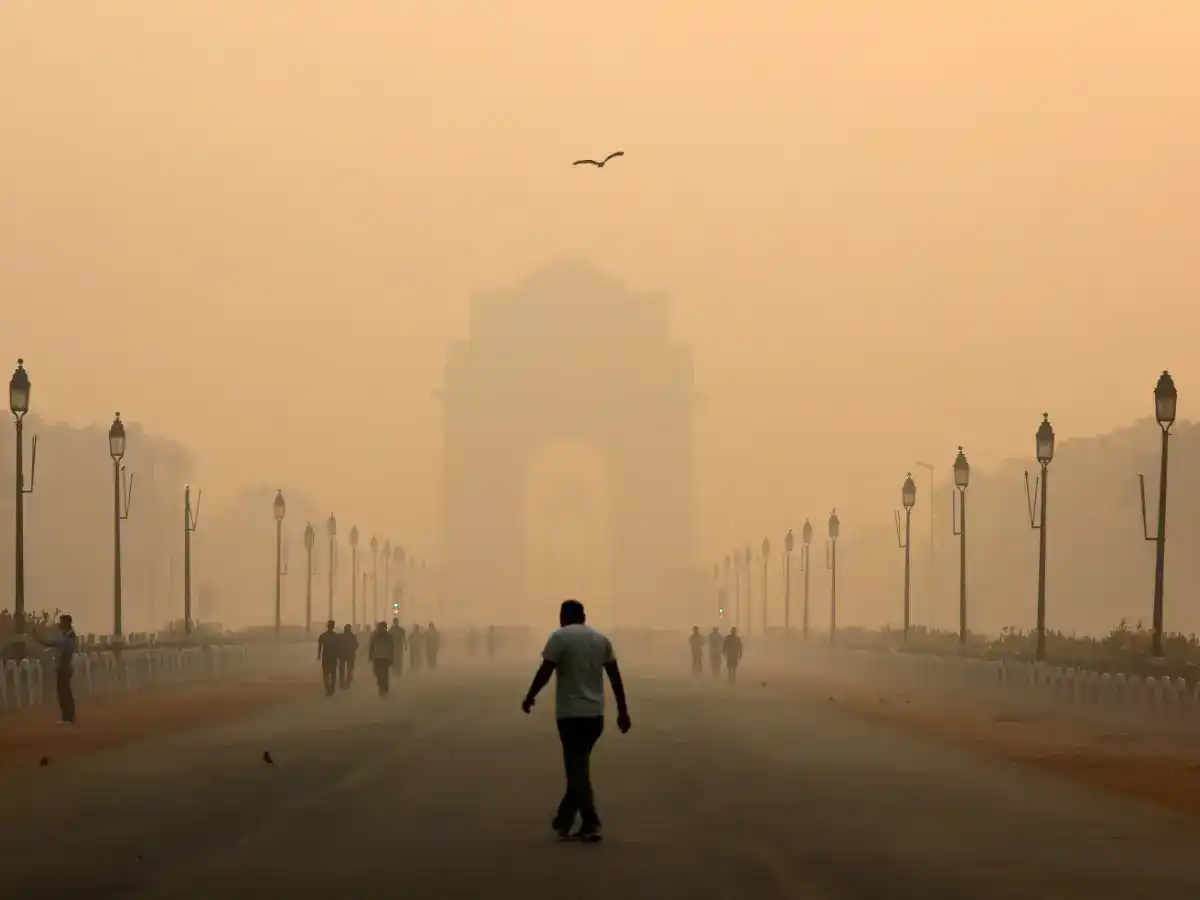Delhi’s condition worsened because of the wind, but the air quality saw an improvement on Saturday morning due to a change in attitude. Nevertheless, the AQI was categorized as ‘poor.’ The Central Pollution Control Board (CPCB) data shows Delhi’s AQI was 227 at 9 am, lower than the 281 recorded Friday morning.
As per the Meteorological Department, this brief respite is expected to be short-lived as the pollution levels may rise again in two to three days due to unfavorable weather conditions.
The Meteorological Department reports that the western disturbance, which was developing as a trough in the mid-tropospheric western winds, has diminished in intensity. Because of this, the possibility of a weather change in North-West India has diminished as well.
The Meteorological Department predicts that the temporary improvement in air quality index (AQI) for Delhi NCR residents will be short-lived, lasting only one or two days. Following this occurrence, there is a possibility of the pollution level rising once more as a result of unfavorable conditions. IMD has issued a fog warning for the morning on October 30 to November 1 for three consecutive days.
The AQI will hit 400 by October 31. Nevertheless, it is anticipated that the weather will stay sunny throughout the day. In other words, it will not rain in the Delhi NCR regions this week. Simultaneously, the meteorological office has forecasted that the highest temperature will reach approximately 34 degrees Celsius.
Simultaneously, the anticipated minimum temperature will range from 19 to 20 degrees Celsius. From October 26 to 29, it is expected that the sky will stay clear all day, starting from the morning.
As per the Air Quality Early Warning System, the wind speed has risen in the past 48 hours. Because of this, there has been a small spread seen in the pollution particles. Nevertheless, this brief respite is temporary. The prediction is that the wind will decrease in speed in the next one or two days.
As a result, the level of pollutant particles is expected to rise. Furthermore, there is also a possibility of firecrackers being burned during Diwali. Because of this, it is probable that the air quality will once again fall into the very poor or severe classification.

